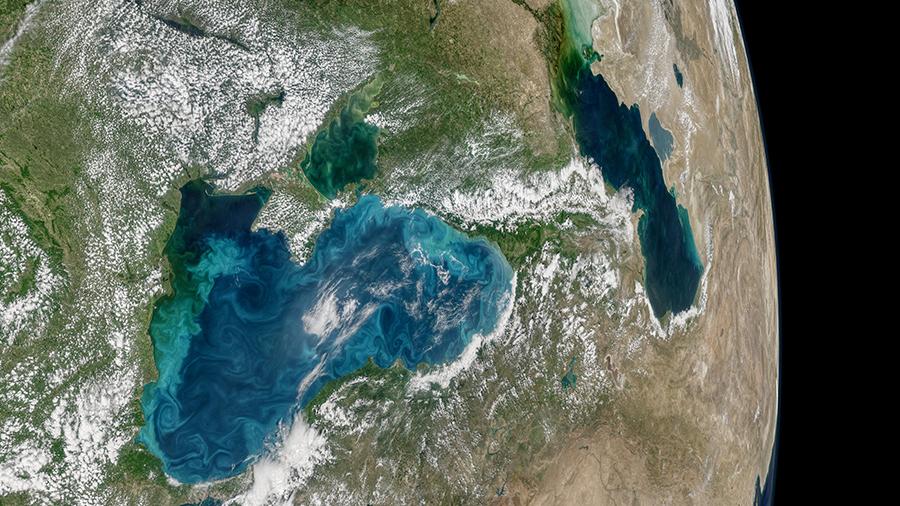- Home page /
- New technologies and equipment /
- New satellites of Roscosmos will be able to search for oil...
New satellites of Roscosmos will be able to search for oil and gas
 |
| Courtesy of angi.ru |
"Roskosmos" will order a new radiolocating satellite, which conducts a survey of the earth's surface and searches for minerals. "Condor-FKA-M" will be able to monitor the earth's surface day and night, even through clouds and rain. The launch is tentatively scheduled for 2025, the beginning of the work will require changes to the current Federal Space Program. The new spacecraft will become a modernized version of the Condor-FKA satellites now being created and will replace them. According to experts, such systems are required for Russia to ensure national security and to search for new deposits of natural resources.
Roskosmos reported to Izvestia about plans to increase the order for the production of radiolocating satellites. Unlike optical space remote sensing satellites, their capabilities are not limited to survey only during daylight and in the cloud-free conditions. Radiolocation can be carried out both at night and in high cloudy conditions.
The development of a group of radiolocating satellites is planned, - said Valery Zaichko, Deputy Director of the Department of Navigation Space Systems of Roskosmos. - The launch of three "Condor" type space vehicles is expected.
Two spacecraft of this series are mentioned in the Federal Space Program until 2025. The "Condor-FKA" satellites are manufactured now by NPO Mashinostroyeniya. They are planned to be launched into orbit in 2019 and 2020. Budget financing is planned at a rate of 3 billion rubles. Work on the third device will require adjusting the program.
According to Valery Zaichko, the new satellite will become a modernized version of the Condor-FKA. Given that the active life of these spacecraft is five years, the upgraded device will replace the predecessors. It will be the third generation of the "Condor" series. The satellites of the first generation (also produced by the NPO Mashinostroyeniya) were launched in 2013-2014, but broke down quickly.
According to a source in Roskosmos, a tender for the development of the new spacecraft will be announced already in the first quarter of 2018. Now the specialists of the state corporation are forming the technical task for its appearance and characteristics.
The NPO Mashinostroyeniya has confirmed the discussion of the creating a next-generation satellite together with experts of Roskosmos. The enterprise expressed willingness to participate in an open tender for its creation.
In addition to the "Condor", the radiolocating satellites of the "Obzor-R" series should replenish of the Russian groups of the Earth observation satellite in 2021-2023 (the developer and manufacturer is the Progress-rocket and space center).
The operating principle of radiolocating satellites is based on the emission of probing pulses and the recording of echo signals reflected from the Earth. Using different wavelength ranges provides high quality shooting - up to several centimeters per pixel. This allows one to consider even small items. Depending on the wavelength used, the radar signal can penetrate underground to a depth of several tens of meters. There is an opportunity to see shelter, pipelines, and also to find oil and gas deposits with an accuracy of half a meter. The common ground and oil-and-gas fields reflect the emitted signal differently.
"Such devices are very necessary in the interests of the country's defense capability, as well for solving national economic problems," said Alexander Zheleznyakov, the full member of K.E. Tsiolkovsky Russian Academy of Cosmonautics. "The fact that Roskosmos is going to order new satellites meets our national interests. They can conduct mineral exploration, monitoring of natural disasters. The data of such devices are in great demand in the world. Radiolocating satellites are regularly launched abroad, they have unique capabilities to work in all weather conditions.
The Russian civil or military orbital group has not a single operational radar satellite. At the same time such devices are actively used by other states.
Source: angi.ru

